Top 10 Worst Supreme Court Decisions in United States History
Prepare to delve into the annals of United States history as we explore ten of the most controversial and widely criticized Supreme Court decisions ever handed down. These rulings, while legally binding, have been met with fierce opposition and have often had far-reaching consequences, shaping the nation's social, political, and economic landscape in ways that continue to be debated today. From upholding racial segregation and denying citizenship rights to expanding government power and limiting individual liberties, these decisions have left a shameful stain on American society. Join us as we reveal the top ten worst Supreme Court decisions in United States history, shedding light on the complexities and challenges of interpreting the Constitution and the impact that these rulings have had on the lives of millions.The Top Ten
1 Dred Scott v. Sandford
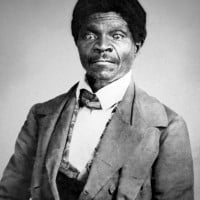 Dred Scott v. Sandford was a controversial 1857 Supreme Court decision that declared African Americans were not U.S. citizens and could not sue in federal courts, as well as denying Congress the power to prohibit slavery in U.S. territories.
Dred Scott v. Sandford was a controversial 1857 Supreme Court decision that declared African Americans were not U.S. citizens and could not sue in federal courts, as well as denying Congress the power to prohibit slavery in U.S. territories.
 Dred Scott v. Sandford was a controversial 1857 Supreme Court decision that declared African Americans were not U.S. citizens and could not sue in federal courts, as well as denying Congress the power to prohibit slavery in U.S. territories.
Dred Scott v. Sandford was a controversial 1857 Supreme Court decision that declared African Americans were not U.S. citizens and could not sue in federal courts, as well as denying Congress the power to prohibit slavery in U.S. territories.
2 Korematsu v. United States
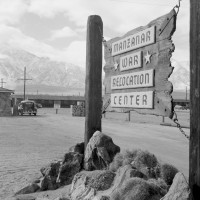 Korematsu v. United States was a 1944 Supreme Court decision that upheld the constitutionality of the forced internment of Japanese Americans during World War II, a decision that has been widely criticized as a violation of civil liberties.
Korematsu v. United States was a 1944 Supreme Court decision that upheld the constitutionality of the forced internment of Japanese Americans during World War II, a decision that has been widely criticized as a violation of civil liberties.
 Korematsu v. United States was a 1944 Supreme Court decision that upheld the constitutionality of the forced internment of Japanese Americans during World War II, a decision that has been widely criticized as a violation of civil liberties.
Korematsu v. United States was a 1944 Supreme Court decision that upheld the constitutionality of the forced internment of Japanese Americans during World War II, a decision that has been widely criticized as a violation of civil liberties.
3 Plessy v. Ferguson
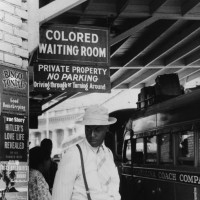 Plessy v. Ferguson was a landmark case in which the U.S. Supreme Court upheld the constitutionality of racial segregation laws under the "separate but equal" doctrine.
Plessy v. Ferguson was a landmark case in which the U.S. Supreme Court upheld the constitutionality of racial segregation laws under the "separate but equal" doctrine.
 Plessy v. Ferguson was a landmark case in which the U.S. Supreme Court upheld the constitutionality of racial segregation laws under the "separate but equal" doctrine.
Plessy v. Ferguson was a landmark case in which the U.S. Supreme Court upheld the constitutionality of racial segregation laws under the "separate but equal" doctrine.
4 Roe v. Wade
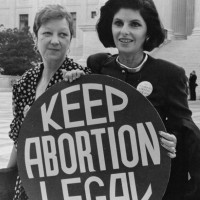 Roe v. Wade was a landmark 1973 Supreme Court decision that legalized abortion in the United States, establishing the right to privacy as protected by the Fourteenth Amendment.
Roe v. Wade was a landmark 1973 Supreme Court decision that legalized abortion in the United States, establishing the right to privacy as protected by the Fourteenth Amendment.
 Roe v. Wade was a landmark 1973 Supreme Court decision that legalized abortion in the United States, establishing the right to privacy as protected by the Fourteenth Amendment.
Roe v. Wade was a landmark 1973 Supreme Court decision that legalized abortion in the United States, establishing the right to privacy as protected by the Fourteenth Amendment.
5 Wickard vs. Filburn
 Wickard vs. Filburn was a 1942 Supreme Court decision that expanded the power of the federal government to regulate economic activities by upholding a New Deal-era law that limited the amount of wheat that farmers could grow for personal consumption.
Wickard vs. Filburn was a 1942 Supreme Court decision that expanded the power of the federal government to regulate economic activities by upholding a New Deal-era law that limited the amount of wheat that farmers could grow for personal consumption.
 Wickard vs. Filburn was a 1942 Supreme Court decision that expanded the power of the federal government to regulate economic activities by upholding a New Deal-era law that limited the amount of wheat that farmers could grow for personal consumption.
Wickard vs. Filburn was a 1942 Supreme Court decision that expanded the power of the federal government to regulate economic activities by upholding a New Deal-era law that limited the amount of wheat that farmers could grow for personal consumption.
6 Buck v. Bell
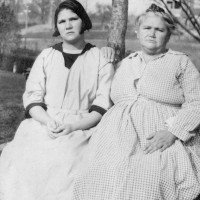 Buck v. Bell was a Supreme Court case that upheld a Virginia law that allowed for the compulsory sterilization of individuals deemed "unfit" by the state.
Buck v. Bell was a Supreme Court case that upheld a Virginia law that allowed for the compulsory sterilization of individuals deemed "unfit" by the state.
 Buck v. Bell was a Supreme Court case that upheld a Virginia law that allowed for the compulsory sterilization of individuals deemed "unfit" by the state.
Buck v. Bell was a Supreme Court case that upheld a Virginia law that allowed for the compulsory sterilization of individuals deemed "unfit" by the state.
7 Prigg v. Pennsylvania
Prigg v. Pennsylvania was a Supreme Court case that addressed the constitutionality of the Fugitive Slave Act of 1793 and established that the federal government had exclusive authority over the return of fugitive slaves.
8 McCulloch v. Maryland
McCulloch v. Maryland was a landmark 1819 Supreme Court decision that established the principle of federal supremacy by upholding the constitutionality of the Second Bank of the United States and preventing states from taxing federal institutions.
9 Lochner v. New York
Lochner v. New York was a landmark case in which the U.S. Supreme Court struck down a New York state law that regulated the hours of bakers, holding that it violated the Due Process Clause of the Fourteenth Amendment.
10 Gonzales v. Raich
Gonzales v. Raich was a 2005 Supreme Court decision that affirmed the federal government's power to prohibit the use of medical marijuana, even in states that had legalized it, on the grounds that it fell under the Commerce Clause of the U.S. Constitution.
The Contenders
11 Elk v. Wilkins
Elk v. Wilkins was a landmark case in which the U.S. Supreme Court held that Native Americans were not U.S. citizens and could not claim the protections of the Fourteenth Amendment.
12 Swift & Co. v. United States
Swift & Co. v. United States was a 1905 Supreme Court decision that upheld the constitutionality of the Sherman Antitrust Act and established the principle that contracts in restraint of trade were illegal under federal law.
13 South Dakota v. Dole
South Dakota v. Dole was a 1987 Supreme Court decision that upheld the constitutionality of a federal law that withheld highway funds from states that did not raise the legal drinking age to 21, establishing the precedent for Congress to use its spending power to influence state policies.
14 NLRB v. Jones & Laughlin Steel Corp.
NLRB v. Jones & Laughlin Steel Corp. was a 1937 Supreme Court decision that upheld the constitutionality of the National Labor Relations Act and established the principle that Congress had the power to regulate labor relations under the Commerce Clause of the U.S. Constitution.
15 Pace v. Alabama
Pace v. Alabama was a landmark case in which the U.S. Supreme Court upheld the constitutionality of a state law that criminalized interracial marriage.
16 Jones v. Alfred H. Mayer Co.
Jones v. Alfred H. Mayer Co. was a 1968 Supreme Court decision that prohibited private discrimination in the sale or rental of property under the Civil Rights Act of 1866.
17 Obergefell v. Hodges
Obergefell v. Hodges was a landmark case in which the U.S. Supreme Court held that same-sex couples have the constitutional right to marry and that states cannot ban same-sex marriage.
18 Citizens United v. FEC
Citizens United v. FEC was a landmark case in which the U.S. Supreme Court held that corporations and unions have the right to spend unlimited amounts of money on political campaigns under the First Amendment.
19 Bush v. Gore
Bush v. Gore was a landmark case in which the U.S. Supreme Court stopped the Florida recount in the 2000 presidential election, effectively declaring George W. Bush the winner.
20 Katzenbach v. McClung
Katzenbach v. McClung was a 1964 Supreme Court decision that upheld the constitutionality of the Civil Rights Act of 1964 and its prohibition of racial discrimination in public accommodations, even in private businesses that served interstate customers.
21 Bowers v. Hardwick
Bowers v. Hardwick was a controversial 1986 Supreme Court decision that upheld the constitutionality of a Georgia law criminalizing consensual sodomy, a decision that was later overturned by Lawrence v. Texas.
22 Dennis v. United States
Dennis v. United States was a 1951 Supreme Court decision that upheld the constitutionality of the Smith Act, which criminalized advocating for the overthrow of the U.S. government, leading to the prosecution and imprisonment of several members of the Communist Party.
23 Nebbia v. New York
Nebbia v. New York was a landmark case in which the U.S. Supreme Court upheld the constitutionality of a New York state law that regulated milk prices during the Great Depression.
24 West Coast Hotel Co. v. Parrish
West Coast Hotel Co. v. Parrish was a landmark case in which the U.S. Supreme Court upheld the constitutionality of a Washington state minimum wage law.
25 United States v. Carolene Products Co.
United States v. Carolene Products Co. was a landmark case in which the U.S. Supreme Court established the "rational basis" test for evaluating economic regulations.
8Load More
PSearch List